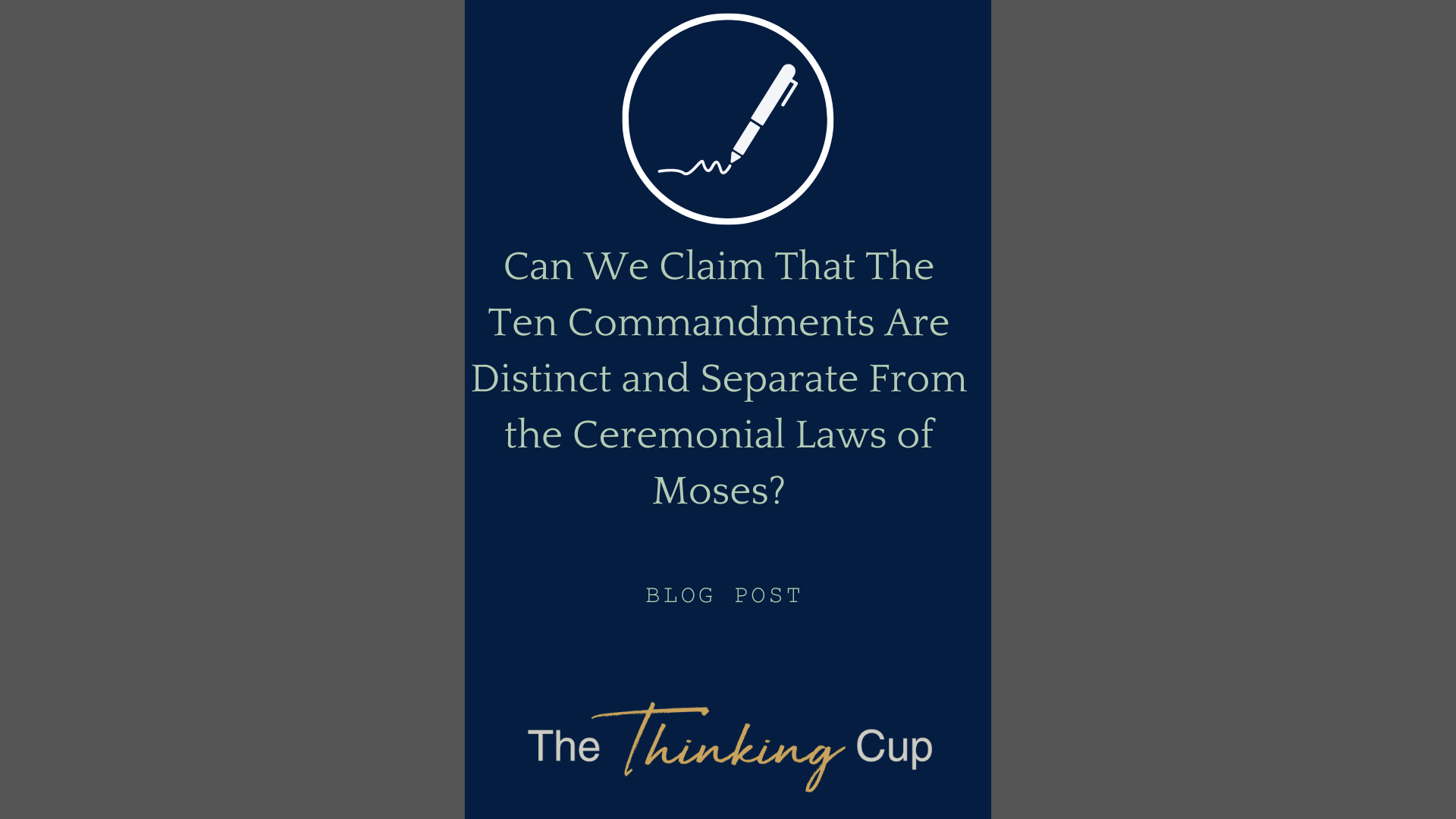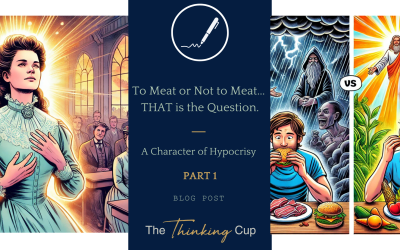The Ten Commandments are distinct and separate from the “ceremonial” Law of Moses that was written in the Book of the Law and placed inside the Ark of the Covenant (Deut 31:26)
This claim is untruthful. It is an unjustifiable assumption that has absolutely no biblical support. In what reality could the Ten Commandments be distinct and separate as something unique and special? The Ten Commandments are only applicable in a given culture if they are adjusted over time to the culture itself. Specifically, inside covenantal relationships in the Ancient Near Eastern, the Ten Commandments had to be part of a covenant to hold relevance. The Ten Commandments are a part of the entire Law given to the Israelites. This reality is often forgotten and many times intentionally avoided.
When Yahweh renews the covenant with Moses and the Israelites after the first stone tablets were broken, Yahweh says this:
“Behold, I am making a covenant. Before all your people I will do marvels, such as have not been created in all the earth or in any nation. And all the people among whom you are shall see the work of the Lord, for it is an awesome thing that I will do with you. Observe what I command you this day…” (Ex 34:10–11)
The verses that follow lay out the actual parts of the covenant. The Ten Commandments are part of the ENTIRE covenant relationship. We find that Moses is commanded to write down requirements, as part of the covenant, that include not worshiping other gods, not making metal images of those gods, keeping the Feast of Unleavened Bread, firstborn of both the human womb and animal are considered redeemed, no work on the seventh day, and several other items. When we get to verses 27 and 28, we see that all the words that Yahweh spoke were part of the covenant.
“And the Lord said to Moses, ‘Write these words, for in accordance with these words I have made a covenant with you and with Israel.’ So he was there with the Lord forty days and forty nights. He neither ate bread nor drank water. And he wrote on the tablets the words of the covenant, the Ten Commandments.” (Ex 34:27–28)
The last few words show that the Ten Commandments function like an executive summary of the entire covenant, which was written on stone tablets. Here, we see parts of the ‘ceremonial’ laws included in the ‘moral’ law. (I use these terms only to refer to the categories given by the Adventist system) And yet all of them were a part of the renewed covenant written on stone. What isn’t clear is whether this renewed covenant was written by Moses or by God. John M’Clintock and James Strong, in their entry on Books from Cyclopædia of Biblical, Theological, and Ecclesiastical Literature, Supplement—A–Z, asserts:
“The tables of the testimony are said to be ‘written by the finger of God’ (31:18) on both sides, and ‘the writing was the writing of God, graven upon the tables’ (23:15). It is not clear whether the passage in 34:28 implies that the second tables were written by Moses or by God himself.” [1]
The Law of God, the entirety of the requirements inside the covenant, has several different terms or phrases. These various names for the Law or sections of it are used interchangeably. We can see this pretty clearly in the Book of Nehemiah. Nehemiah uses the phrases “the Law” (Neh. 8:2, 7, 9 13, 14; 10:28, 34, 36; 12:44; 13:3), “the Book of the Law” (Neh. 8:3), “the Law of God” (Neh. 8:8; 10:28), “the Book of the Law of the Lord” (Neh. 9:3), “God’s Law that was given by Moses” (Neh. 10:29), “the Book of Moses” (Neh. 13:1), and “Law that the LORD had commanded by Moses” (Neh. 8:14)
When we get to the New Testament, Luke uses Moses’ Law and God’s Law interchangeably, looking back at this exact section in Exodus.
“And when the time came for their purification according to the Law of Moses, they brought him up to Jerusalem to present him to the Lord (as it is written in the Law of the Lord, ‘Every male who first opens the womb shall be called holy to the Lord’) and to offer a sacrifice according to what is said in the Law of the Lord, ‘a pair of turtledoves, or two young pigeons.’” (Lk 2:22–24) [italics mine]
One can comb through all of Scripture, Jewish History, Second Temple literature, the Midrash, and the Talmud and never find one statement in which Jews considered the Ten Commandments to have been exclusively “God’s Law” that was separate and different from the “Law of Moses.” These two ‘laws’ are not independent of each other; they are seen as the same Law. They are one. Additionally, one will never read in the Scripture that the Ten Commandments have greater weight and authority than the rest of the Law because they were “God’s Law” and “written with His own finger.” All of the Law is God’s Law, which was equally authoritative for the Jews.
The entire Law was seen as one package. You keep all of it, or you break the whole thing by breaking one part of the law. You can’t dice parts of the law and separate them into nice sections that get nailed to the cross while other parts are still eternally binding to all humanity. If any portion of the Law is still a part of the New Covenant, then ALL of the Law is still in place. Scripture says that the one who did not abide by everything the Law said was under a curse.
“‘Cursed be anyone who does not confirm the words of this law by doing them.’ And all the people shall say, ‘Amen.’” (Dt 27:26)
In Galatians 3:10, Paul quotes this text to illustrate to the Galatians that the Law can justify no one.
“For all who rely on works of the law are under a curse; for it is written, ‘Cursed be everyone who does not abide by all things written in the Book of the Law, and do them.’” (Ga 3:10)
We must remember that the Book of the Law was ratified as the Old Covenant, sprinkled with blood in Exod. 24:4-8. No biblical evidence indicates that the Ten Commandments were ratified as a separate, moral covenant independent of the Book of the Law covenant.
In my next post, we will discuss whether the Ceremonial Laws are the only laws that have been abolished, but the Ten Commandments remain to be kept by all. We will also discuss whether dividing the Mosaic Law into different categories (Ceremonial, Civil, and Moral) is even fair and honoring the Biblical text and context.
[1] John M’Clintock and James Strong, “Books,” in Cyclopædia of Biblical, Theological, and Ecclesiastical Literature, Supplement—A–Z (New York: Harper & Brothers, Publishers, 1894), 560.




0 Comments